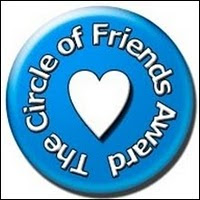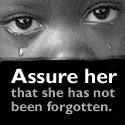I had the great good fortune to read – and enjoy – another new author (new for me). The author is Jenny B. Jones and the book is ‘Save the Date .’
.’
Here is the synopsis of this novel :
:
You are cordially invited to the wedding of the year with the most unlikely bride and groom. Save the date…and say your prayers.
When the funding for Lucy’s non-profit job is pulled, she is determined to find out why. Enter Alex Sinclair, former professional football star and heir to Sinclair Enterprises – the primary donor to Lucy’s non-profit organization.
Both Lucy and Alex have something the other desperately wants.
Alex has it all…except for the votes he needs to win his bid for Congress. Despite their mutual dislike, Alex makes Lucy a proposition: pose as his fiancée in return for the money she desperately needs. Bound to a man who isn’t quite what he seems. Lucy finds her heart – and her future – on the line.
Save the Date is a spunky romance that will have readers laughing out loud as this dubious pair try to save their careers, their dreams…and maybe even a date.
Here is the biography of this author:
Jenny B. Jones writes Christian Fiction with equal parts wit, sass, and untamed hilarity. When she’s not writing, she’s living it up as a high school teacher In Arkansas. Since she has very little free time, she believers in spending her spare hours in meaningful, intellectual pursuits, such as watching E!, going to the movies and inhaling large buckets of popcorn, and writing her name in the dust on her furniture. She is the four-time Carol Award-winning author of Just Between You and Me, the Charmed Life series for young adults (So Not Happening , I'm So Sure
, I'm So Sure , So Over My Head
, So Over My Head ) plus the Katie Parker Series (In Between
) plus the Katie Parker Series (In Between , On the Loose
, On the Loose , The Big Picture
, The Big Picture ).
).
I was pleasantly enchanted by the main characters in this book – Lucy Wiltshire and Alex Sinclair. Each of these characters has their quirks – Lucy is a huge Sci-Fi fan and Alex is a former professional football player who was born with a silver spoon in his mouth. Both initially acted as you’d expect – Lucy was a major league nerd and Alex was very cocky. However, they both came to be loving and charming people.
Here is an early glimpse at the person of Alex Sinclair:
Though the media was having a field day with his life at the moment, Alex wasn’t about to give up. It was a foreign feeling – this losing. He was a conqueror. Just like on the field, he should be able to size up his opponent, zero in on his weakness, and go for the kill. But it wasn’t working. Each day held another setback. Just last week People magazine had run a scathing expose on every alleged bitter girlfriend Alex had ever had. Their group photo had taken up two whole pages. Only part of it had been true – the rest lies and toxic slams on his character…. (p. 17)
Personally, I would steer clear of a man with that reputation!
Lucy decided to move forward with the plan to be Alex’s fiancée in exchange for a large payoff to help save the Saving Grace home. However, she had a hard time adjusting to his lifestyle. Her nerdy/klutzy side came out at the most inopportune times:
Throughout dinner at the Peninsula Grill, she had felt the same unease gnawing on her insides like rabid butterflies desperate for freedom. As Alex had casually made small talk and taken nice even bites of his filet mignon, the enormity of what she had agreed to play out in her head like a late-night movie. And the butterflies only flapped harder. In her defense, it wasn’t Lucy’s fault that the waiter reached for the breadbasket just as her knife slipped. Or that she knocked the water pitcher out of his hand in an attempt to help him. Or that he slipped on the ice and carried the whole tablecloth with him. (p. 71)
I love Jenny’s writing style. Here is her description of Alex; no wonder his nickname was ‘Playboy!’ His looks are contrasted with Lucy’s:
He looked like he had walked right off a Ralph Lauren runway. Natural chestnut highlights shone in his dark hair, complementing his tan. His gray suit might have made him look sophisticated and serious, but it couldn’t hide the athlete beneath it. While she, on the other hand, had slept a combined total of fifteen minutes. Between the nightmares about close-ups and long-angle lenses, thoughts of her family, and rolling on her sore hand, she was worn out. Lucy’s eyes were so puffy she hadn’t even bothered putting on makeup, and her hair was nothing more than a limp ponytail with stray curls staging spiral revolts. And he had the nerve to show up this morning at Clare’s, whisk her off to breakfast, and look like Mr. GQ. (p. 157)
I also loved the spiritual elements in this book. Here is a brief excerpt from a message to a youth group from Lucy’s friend Morgan’s roommate, Chuck; we all, no matter our age, need to aware of the schemes of the devil, to discard them for the lies they are, and to accept the truth of the Bible:
The youth pastor held up his tattered Bible. “This is your armor.” He rushed back to the stage and pointed to the crude wooden cross. “And this is the only place you surrender. Tell the devil you’re through listening. It’s time to tell yourself, ‘I’m good enough.’ It’s time to claim the verse in the Bible that says you are a dearly loved child of God. You are adored. And you deserve love.”
You deserve love.
“When that voice sneaks into your head with lies, you claim the opposite. Say ‘I’m beautiful. I’m a success. I’m going places.’ God doesn’t care about your background, what kind of clothes you wear.” Chuck’s voice rose with passion. “Stop looking in the mirror for your truth. Stop listening to your friends. Don’t read that magazine and think that’s your reality. They’re lying to you. Because you are dearly loved.” He looked to the left. “Isn’t it time we started acting like it?” (pp. 255-256)
Amen to that!
I loved the ending of this book; sweet!
I have to add Jenny B. Jones to my list of authors whose books I will pursue and read in the future! This book is wonderfully well-written and has a wonderful message of forgiveness and love for readers of all ages. There is a Reading Group Guide at the end of this book; it would be a great choice for a group of lady friends or those ladies who want to bond over this terrifically entertaining book.
You can order this book here .
.
This book was published by Thomas Nelson Publishers and provided by Wynn-Wynn Media for review purposes.





















.jpg)

